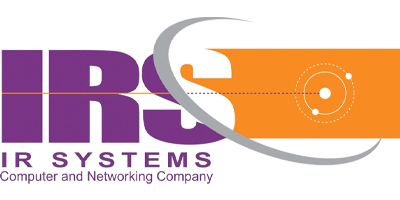NAS Storage: The Smart Business Solution

In today’s digital-driven world, businesses generate and manage massive amounts of data. Whether it’s customer information, project files, or financial records, efficient storage solutions are critical. One of the most reliable and scalable options available is NAS storage (Network-Attached Storage). This technology offers small businesses an affordable way to store, manage, and access data seamlessly. If you’re looking for a network attached storage device that offers high performance, security, and scalability, NAS storage is your best bet. In this guide, we’ll explore what NAS storage is, its benefits, and why it’s a game-changer for businesses of all sizes. Understanding NAS Storage NAS storage, or network access storage, is a centralized file storage system that allows multiple users and devices to access data through a network. Unlike traditional storage solutions, NAS devices operate as independent units that provide fast and reliable data access. A network attached storage device connects directly to your office network, eliminating the need for external hard drives or USB-based storage solutions. It allows multiple users to access shared files, making collaboration and data management much more efficient. Why NAS Storage is Ideal for Small Businesses For small businesses, NAS storage for small business is a cost-effective and highly scalable solution. Here are some compelling reasons why businesses should consider investing in a NAS system: 1. Centralized Data Storage Instead of storing files across multiple devices, NAS storage consolidates data in a single location. This makes data management easier and reduces the risk of file duplication or loss. 2. Easy Accessibility With a network access storage system, employees can retrieve and share data from anywhere within the network. Some NAS devices even allow remote access, enabling teams to work from home or other locations. 3. Cost-Effective Solution Investing in NAS storage for small business is much cheaper than setting up a dedicated server. NAS devices require minimal IT expertise to install and maintain, reducing overall costs. 4. Enhanced Security Security is a major concern for businesses, especially when dealing with sensitive data. NAS systems offer built-in security features such as password protection, encryption, and automated backups, ensuring your data is safe from cyber threats. 5. Scalability for Business Growth As businesses grow, so do their storage needs. NAS storage solutions are highly scalable, allowing businesses to add more storage capacity as required without replacing the entire system. Key Features to Look for in a Network Attached Storage Device When choosing the right network attached storage device for your business, here are some key features to consider: 1. Storage Capacity The size of your NAS device should align with your business needs. If your company deals with large media files or extensive databases, opt for a high-capacity NAS system. 2. RAID Support RAID (Redundant Array of Independent Disks) enhances data redundancy and protects against hardware failures. Look for NAS devices with RAID configurations to ensure data reliability. 3. Connectivity Options A good network access storage device should support multiple connectivity options such as Ethernet, Wi-Fi, and USB for seamless integration with your existing network. 4. Backup and Recovery Features Automated backups and disaster recovery options help safeguard business-critical data. Ensure that the NAS system supports cloud synchronization and scheduled backups. 5. User Access Control A robust NAS system allows businesses to set user permissions and control who can access specific files. This is crucial for protecting confidential information. Top Use Cases of NAS Storage for Small Businesses 1. File Sharing and Collaboration With a NAS device, multiple users can access, edit, and share files simultaneously. This is particularly useful for teams working on shared projects. 2. Secure Data Backup Regular backups are essential for business continuity. A network attached storage device ensures your data is backed up automatically, reducing the risk of data loss. 3. Media Storage and Streaming For businesses that handle video production, photography, or digital media, NAS storage provides a central hub for storing and streaming large files. 4. Hosting a Private Cloud Businesses looking for a cost-effective cloud storage solution can use NAS to create their own private cloud. This ensures data privacy while offering the convenience of cloud access. 5. Running Virtual Machines Some high-performance NAS devices support virtualization, allowing businesses to run multiple operating systems or applications on a single NAS unit. How to Set Up a NAS Storage System for Your Business Setting up a NAS system is relatively straightforward. Follow these steps to get started: Step 1: Choose the Right NAS Device Select a NAS system that meets your storage capacity, connectivity, and security requirements. Step 2: Install the Hard Drives Most NAS devices allow you to install your own hard drives. Choose high-speed, high-capacity drives that support RAID configurations. Step 3: Connect to Your Network Use an Ethernet cable to connect the NAS device to your office network. Configure the settings using the NAS management software provided by the manufacturer. Step 4: Set Up User Permissions Create user accounts and define access levels for employees to ensure data security. Step 5: Configure Backups and Security Settings Enable automatic backups, encryption, and firewall settings to protect your data from cyber threats. Step 6: Enable Remote Access (Optional) If your team needs to access data remotely, configure the NAS system to allow secure remote connections. Conclusion For small businesses looking for an efficient, secure, and scalable storage solution, NAS storage is a game-changer. It offers centralized data storage, easy access, cost savings, and enhanced security, making it an ideal choice for companies of all sizes. A network attached storage device not only simplifies file management but also provides robust backup solutions and supports business growth. Whether you need network access storage for file sharing, data backup, or cloud storage, investing in a NAS system will future-proof your business operations. If you’re ready to upgrade your storage infrastructure, now is the time to explore the best NAS storage for small business and take advantage of its powerful features. Your data is the backbone of your business—protect it with a reliable NAS solution
